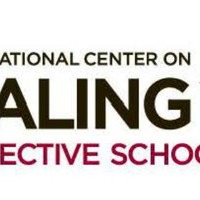Scaling Systemic Personalization Through Continuous Improvement: A Model for High School Reform
Item
- Title
- Scaling Systemic Personalization Through Continuous Improvement: A Model for High School Reform
- Abstract/Description
-
OBJECTIVES
The purpose of this poster is to present the National Center on Scaling Effective Schools’ (NCSU) work with the Broward County Public Schools (BCPS), the sixth largest school district in the U.S. NCSU a research-practice partnership that since 2010 has brought together the BCPS, external partners, and university researchers to identify, develop and scale a systemic reform. Here, we describe how we have scaled systemic personalization in all thirty BCPS high schools.
PERSPECTIVES
During the 2010-11 school year, researchers at NCSU conducted three weeks of intensive qualitative research in two higher and two lower performing high schools in BCPS to identify what made the higher performing schools more effective than the lower performing ones. We found that what differentiated the schools was not instructional quality, but rather systemic personalization. We call this Personalization for Academic and Social-Emotional Learning (PASL) (Rutledge, Cohen-Vogel, Osborne-Lampkin & Roberts, 2015).
In 2012, the partners convened as a Networked Improvement Community (NIC) (Bryk, Gomez, & Grunow, 2011). This group of district and school administrators, teachers, developers, and researchers was given the “design challenge” of translating study and research findings into a prototype to be implemented in other district schools. Since 2014 members of the PASL NIC have scaled PASL (Cannata, Cohen-Vogel, & Sorum, 2015).
DATA SOURCES
During our year one study of effective high schools, we conducted 135 interviews with district and school administrators, teachers, guidance counselors and students as well as observations of classrooms using the CLASS-S instrument as a measure of classroom quality. In subsequent years, we interviewed and conducted focus groups with approximately 250 district and school administrators, teachers and students. All interviews are transcribed and we use analytic memo writing to organize concepts. As participants in the NIC, we also have organized and audio recorded the quarterly professional development meetings.
RESULTS
The work in Broward around PASL has been scaled using the continuous improvement strategy of Plan-Do-Study-Act. School teams have participated in professional development around the PASL core components, underlying research, and how to engage in PDSA cycles to scale PASL in their school. At each quarterly meeting, they are expected to bring data and share what they learned in the most recent cycle and then plan the focus of their next PDSA cycle. These meetings foster a social learning process across schools as they collectively build knowledge about improving PASL in their schools. Over the last five years, PASL has been scaled into 24 high schools, with all 30 joining this coming academic year.
SIGNIFICANCE
The successful scaling of PASL can be attributed to several elements within the NIC. First, the innovation resonates with implementers. Second, PDSA allows implementers to iterate on their implementation, giving them opportunity to build on successes and learn from challenges, all the while drawing on their own research. Third, implementing teams learn from other schools. Finally, it employs a top-down, bottom-up approach that recognizes the administrative hierarchy of an urban school district, but also gives autonomy to school teams to adapt to their unique context. - Date
- At conference
- AERA Annual Meeting
- Place presented
- Toronto
- Resource type
- en Research/Scholarly Media
- Resource status/form
- en Presentation/Poster
- Scholarship genre
- en Empirical
- IRE Approach/Concept
- Personalization for Academic and Social Emotional Learning (PASL)
- Networked Improvement Community (NIC)
- Plan Do Study Act (PDSA) Cycle
- Featured case/project
- Broward County Public Schools (BCPS)
- Primary national context
- United States
- Open access/full-text available
- en No
- Peer reviewed
- en Yes
- URL
- Poster Description (via AERA Conference Program)
- Poster Description (via AERA Online Paper Repository)
- Other related resources/entities
- Systems Thinking in Education Special Interest Group (SIG)
-
 National Center on Scaling Up Effective Schools (NCSU)
National Center on Scaling Up Effective Schools (NCSU)
- [Untitled]
- Citation
- Rutledge, S. A., Gilliam, E., & Closson-Pitts, B. (2019). Scaling Systemic Personalization Through Continuous Improvement: A Model for High School Reform. AERA Annual Meeting, Toronto, ON.
Annotations
There are no annotations for this resource.

